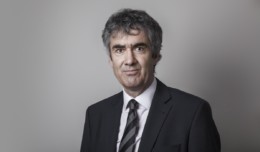Tax Spring Newsletter
Disclosure and Fairness in Tax Appeals
The decision in Smart Price Midlands Ltd and Hare Wines Ltd
At the end of last year (6 December 2017) the Upper Tribunal (UT) handed down its judgement in the case of Smart Price Midlands Ltd and Hare Wines Ltd. The argument before the UT was not the substantive appeal but was concerned with the disclosure obligations of HMRC when certain appeals are brought.
The underlying appeal by the two companies is in respect of the Alcohol Wholesalers Registration Scheme (AWRS) about which I have written before when considering the case of X&Y (see here). The companies sought approval from HMRC to be accepted to the scheme and were refused. HMRC’s conclusion, in refusing approval, was that the companies were not fit and proper persons. The companies appealed to the FtT.
Read More
Public Interest Immunity and the Tax Tribunal
As well as collecting taxes HMRC is also responsible for conducting criminal investigations in respect of a broad spectrum of criminal offences relating to fraud on the tax system. These investigations often involve organised criminal gangs and as a result HMRC are likely to deploy a wide range of intelligence and evidence gathering techniques. The product of such techniques is often sensitive and may even, in the criminal courts, attract Public Interest Immunity (PII), which, in certain circumstances, may mean it does not have to be disclosed. How is such material dealt with in the Tribunal jurisdiction?
Read More
I-AHHHH 35: There’s Trouble Ahead
Christa Ackroyd Media Limited -v- The Commissioners for HM Revenue and Customs [2018] UKFTT 69 (TC)
Christa Ackroyd (“Ms Ackroyd”), a well-known journalist, had her employment relationship with the BBC put under the microscope by the First-tier Tribunal (Tax Chamber) (“the Tribunal”). She presented BBC1’s program “Look North” from 2001 until 2013.
Christa Ackroyd Media Limited (“the Appellant”) was a Personal Service Company and it was that company which received a determination from the Commissioners for HM Revenue and Customs (“the Respondents”) in the sum of £419,151 for the non-payment of income tax and national insurance contributions. Ms Ackroyd was effectively employed by the Appellant (for which she was also a director of) and the Appellant contracted with the BBC offering Ms Ackroyd’s services as a presenter.
Read More
Regulation 29(2)(A) VAT Rules 1995 … The True Ambit of Discretion?
Scandico Limited -v- The Commissioners for HM Revenue and Customs [2017] UKUT 467 (TCC)
Scandico Ltd (S) dealt in the supply of mobile phones. It wanted iPhones to export to developing markets. Apple would only sell two phones to each customer. So S employed a number of “runners” to visit Apple retail shops and purchase as many iPhones as they could. The employees were given cash to cover the purchases and would hand the phones and the till receipts to the company. S for its part met its PAYE and NIC obligations in respect of all employees. All VAT was accounted for by Apple on its sales. There was no suggestion of fraud or abuse. The phones were sold on by S either to other UK traders or EU traders in other Member States. S sought to deduct the input VAT on its purchases. However the till receipts produced by S were not valid VAT invoices since they did not include the customer’s name and VAT number.
Read More
Categories: News | Newsletters




